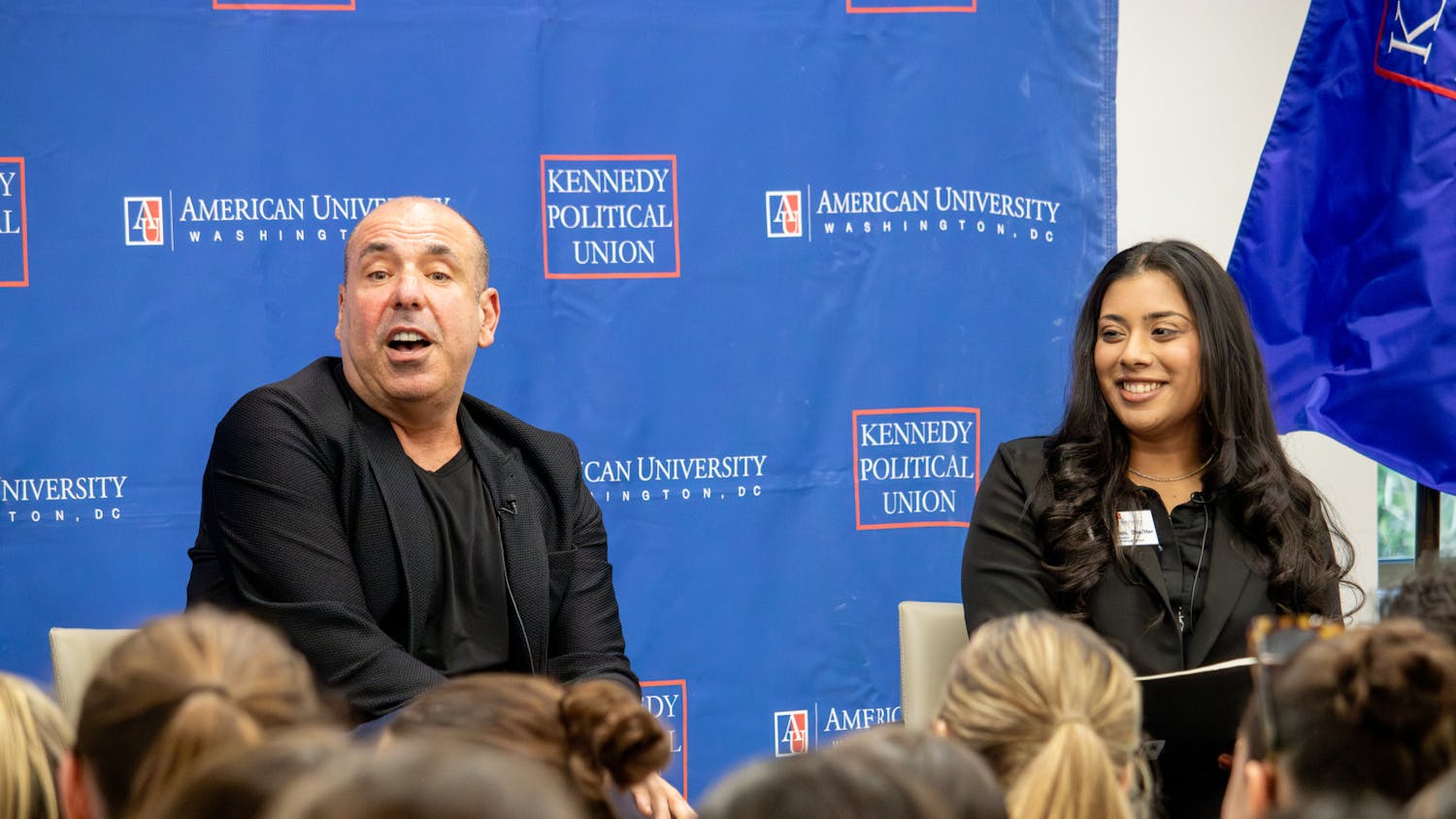AU’s Department of Performing Arts put on a slightly untraditional rendition of Richard Rodgers’ and Oscar Hammerstein’s musical “Allegro,” on Feb. 25.
The production used a pseudo-thrust stage in the Katzen Studio Theater, with the audience seated on three sides of it, causing the actors to be seen from almost all angles. The stage was set up simply; all characters were onstage as part of the Greek chorus to narrate the proceedings and props were nonexistent except for the use of chairs for each character.
These two aspects of the play were specifically created by Rodgers and Hammerstein, while the stage choice was director Karl Kippola’s decision. Kippola is an associate professor in the Department of Performing Arts.
While there were interesting aspects to this production, it was, for the most part, a very traditional anti-consumerism story. A member of a small mid-west town becomes infatuated with the ideas of wealth and success one can achieve in the big city.
After moving to one, Chicago in this case, he realizes that the city is actually dark, terrible, and destroys morals. He sees that the only place to be able to live morally and actually enjoy life is back in his small hometown. Think “The Great Gatsby,” but as a musical, about a doctor, and much more heavy-handed in its moralism.
The musical stars freshman Drew Bondy as Joseph Taylor Jr. and senior Jana Bernard as Jennie Brinker. The two characters grow up together from their birth in 1905, through college, and get married when Joseph follows in his father’s footsteps and goes to medical school.
After graduating during the Great Depression, Jennie convinces her husband not to work in their small town and instead move to Chicago, where a doctor could make more money and where they could live lavishly.
Junior Christine Miyashiro, who plays Hazel, a friend of Jenny’s who becomes a part of the rich consumerist lifestyle, said that one of the hardest parts of the production was playing a female character. She says that the early twentieth century women were just beginning to gain great momentum in becoming equals to the men in society. “Allegro,” though, portrays all the women as ornaments to the men, making all their conflict and character about men.
“For Hazel, her story revolves around the fact that she marries rich, so my struggle as an actor was figuring out how to make her story multi-dimensional, despite the script not providing that context,” Miyashiro said.
The play is quite deliberate in its messages, both about the place for women in society and its message against consumerism and capitalism. The song “A Fellow Needs a Girl” quite blatantly states that women are there to comfort men and to tend to their husbands and housework when needed. The song “Yatata, Yatata, Yatata” creepily shows how the city embraces the vices of the citizens and causes people to lose all their morals which then results in robotic consumers.
The strong performances from Amanda Wade, Patrick McLaughlin, Andrea Kuzniecky, Drew Bondy, Jana Bernard, Christine Miyashiro and William Peters were well appreciated, as well as the amazing singing coming from them all. The drawbacks, however, included the weak story and blatant moralistic message, all problems with the play itself though rather than the production.
The story yelled at its audience that consumerism and greed is bad while saying that morals are good. There is not a deeper meaning than this, and many of the songs are very obvious in what they have to say. The point of “Allegro” is to say that consumerism should not be embraced and we should not be tempted by greed, something that has been said many times before it and will continue to be said as long as the cliche exists.




